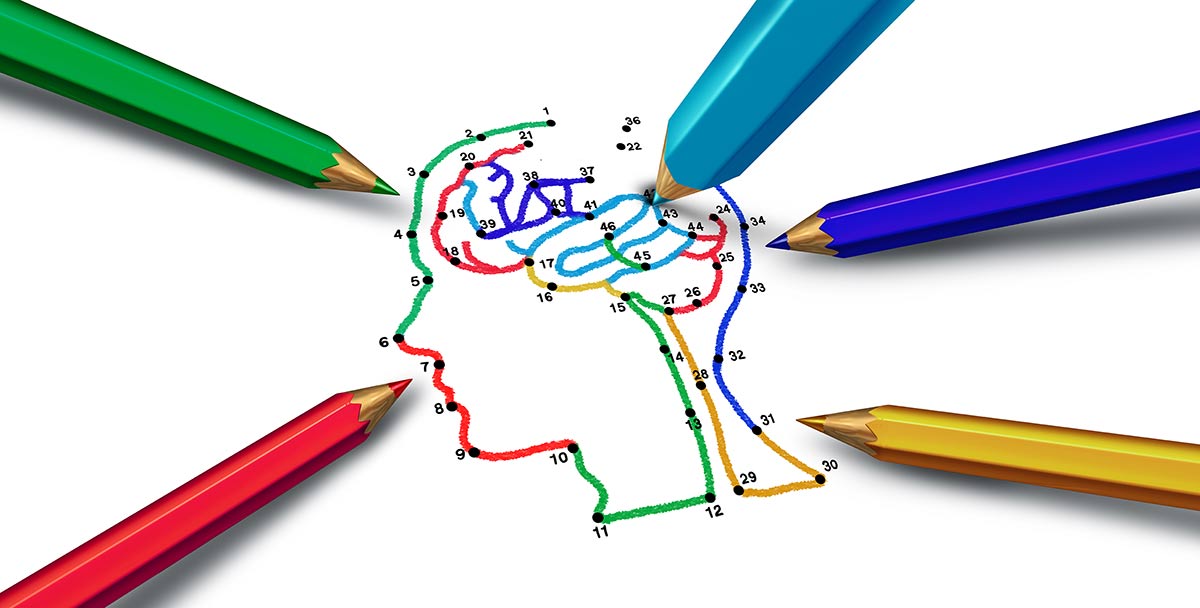PEDIATRIC NEUROPSYCHOLOGICAL EVALUATION & TESTING

Pediatric neuropsychological evaluations refer to a structured process of understanding child, adolescent and young adult thinking abilities by obtaining detailed histories of the patient’s medical, psychological, developmental, school, and social functioning along with behavioral observations, and a number of parent, teacher, or self-report measures. This is all in conjunction with administering standardized and functional cognitive tests, which will make up the bulk of the evaluation. The results of such an evaluation help provide a pattern of strengths and weaknesses for your child that can help us understand possible causes of difficulty and changes in thinking.
PEDIATRIC NEUROPSYCHOLOGICAL EVALUATION
Pediatric neuropsychological evaluations refer to a structured process of understanding child, adolescent and young adult thinking abilities by obtaining detailed histories of the patient’s medical, psychological, developmental, school, and social functioning along with behavioral observations, and a number of parent, teacher, or self-report measures. This is all in conjunction with administering standardized and functional cognitive tests, which will make up the bulk of the evaluation. The results of such an evaluation helps provide a pattern of strengths and weaknesses for your child that can help us understand possible causes of difficulty and change in thinking.
WHEN SHOULD YOU OR YOUR CHILD SEE A NEUROPSYCHOLOGIST?
There are a number of reasons why you may want to see or be referred to a pediatric neuropsychologist. For example, you or your child could experience mild to severe changes or difficulties in thinking, memory, speech, personality, or other behaviors that interfere with their normal day-to-day, academic, or social life. The kinds of changes or difficulties are often described as:
- Forgetting conversations or losing articles around the house
- Difficulty focusing on a task or being easily distracted in academic or social settings
- Weaknesses or variability in academic performance across different subjects (e.g., slow or effortful reading, difficulties recalling math facts, poor writing skills)
- Differences in processing speed or difficulty completing tasks in a timely manner
- Weaknesses in learning new information and/or forgetting material
- Difficulty planning, organizing, problem solving, or using judgment in different situations
- Difficulty controlling impulses and seemingly “acting without thinking”
- Difficulty regulating emotions and behaviors
- Weaker motor skills, including poor handwriting, difficulty using scissors, and trouble navigating buttons/zippers
- Difficulty with language acquisition and learning how to communicate effectively
- Having trouble interpreting social cues and behaving in a way that may not be appropriate for certain contexts
WHEN IS AN EVALUATION USUALLY RECOMMENDED?
A neuropsychological evaluation is recommended for children when a brain related illness or injury is suspected. For example, our practice often evaluates patients in order to rule out or diagnose:
- Prematurity and/or low birth weight
- Exposure to neurotoxins in utero and/or postnatal course (e.g., lead, nicotine, drugs, alcohol)
- Effects of toxic chemicals or lack of oxygen
- Attention Deficit Disorders (ADHD)
- Learning disorders
- Traumatic brain injury (TBI) or concussions
- Epilepsy/Seizure disorders
- Central nervous system infections
- Developmental disorder/delay
- Genetic condition/disorders
- Neuropsychiatric disorders
- Childhood cancer
- Stroke or other neuro-vascular problems
- Brain tumors, neurofibromatosis, or tuberous sclerosis
- Spina bifida, cerebral palsy, or hydrocephalus
A neurological evaluation is also recommended for families and individuals seeking out eligibility for special services such as school accommodations. A main function of pediatric evaluations is describing and providing insight into the way someone learns. This information in turn can be used to make recommendations and adjustments to improve your child’s functioning in academic and social settings.
WHAT IS THE PURPOSE OF THE EVALUATION?
Evaluations have a number of important functions. They can:
- Establish a “baseline” or document skills before problems are readily apparent and assist with interpretation of possible changes that may show in future evaluations
- Help identify how a student learns best
- Understand how differences in brain functioning relate to difficulties at school and home or with peers
- Help match expectations to a student’s strengths and weaknesses/areas of continued development
- Identify problems related to medical conditions that can affect memory and thinking, such as diabetes, metabolic or infectious diseases, or autoimmune disorders
- Help differentiate among illnesses that have similar clinical presentations (e.g., ADHD and anxiety or Autism Spectrum Disorder)
- To assess and measure treatment response, such as medication management of symptoms
- Help plan treatments that use strengths to compensate for weaknesses in different settings (e.g., school, work, personal)
- Help if a student had a school evaluation but has not improved following that evaluation/treatment
Evaluations are designed to measure patterns of strengths and weaknesses in cognitive processing. Measures include attention, concentration, learning, memory, executive functioning, problem solving, and reasoning. Other useful applications include: treatment planning for cognitive rehabilitation, evaluation of learning and academic abilities, forensic procedures, and evaluation of vocational abilities.
WHAT HAPPENS AT AN EVALUATION?
We offer comprehensive neuropsychological test batteries to assess, aid in diagnosis, and guide the treatment of each individual patient. The evaluation involves a number of different tasks—most of which are done sitting at a table. These tasks give us a way of looking at a number of abilities: problem solving, attention, memory, language and motor skills. Evaluations typically extend over a 5-12-hour period, including an interview. Testing is broken up into several shorter tasks so there is plenty of time to stop or take a break. Depending on age of patient, attention span, and level of fatigue, testing may be split over two days. The amount of time required for each test ranges from a couple of minutes to about 15 minutes. Areas evaluated include:
- Intellectual functioning
- Academic functioning
- Attention and concentration
- Executive functioning (e.g., planning, organization, time-management)
- Processing speed
- New learning and memory
- Expressive and receptive language
- Visual spatial functioning
- Motor skills
- Adaptive functioning
- Emotional and behavioral functioning
- Social functioning
WHAT HAPPENS AFTER THE EVALUATION?
The results of the evaluation are used in conjunction with neurologic and other medical evaluations as part of a clinical decision making process. Test scores will be compared to other scores from large groups of healthy people who share similar key attributes, so we can judge whether or not your scores seem typical for your age and educational background. This process also helps us determine your or your child’s unique strengths and weaknesses. We also suggest types of help/resources for you or your child, such as specific supports and services at school. Frequently, the patient will return a few months later to receive additional help integrating and/or tracking progress or other changes. The patterns of your test scores help us estimate whether or not there have been changes in cognitive abilities.
HOW WILL THE TEST RESULTS BE USED?
The results will be shared with your referring physician or mental health provider in a summary report. Your results will help your doctors/providers understand what problems you may have in everyday life. This will help guide planning for assistance or treatment.
For example, if you or your child is diagnosed with dyslexia, the academic institution may already have pre-established special instruction and programs for such cases. However, every individual is different, and some may need other supports or services to help with particular problems. This is especially true if the individual has multiple learning differences or disabilities. Having a neuropsychologist be a part of the conversation can help make sure that your school’s treatment plan addresses all of the issues on the table. A school evaluation will typically identify IF a student experiences academic problems; whereas, a neuropsychological evaluation focuses on WHY the student is experiencing academic problems. Neuropsychologists are able to examine all thinking skills, including memory, attention, problem-solving, and emotional regulation. This provides a focused and individualized school plan as well as medical and mental health treatment plans.
CLOSE ACCORDIONS
For more information or to schedule an appointment, please contact us.
Phone: 919-384-9682
Referral Fax Line: 919-384-9683
Durham Office Location
3310 Croasdaile Drive,
Suite 400
Durham, NC 27705
M-Th 8AM – 4PM,
Fri 8AM – 12PM
USEFUL LINKS
- Dementia/Alzheimer's
- Tramatic Brain Injury
- Multiple Sclerosis (MS)
- Parkinson's Disease
- Attention Deficit Disorder (ADHD)
- Learning Disorders
- Autism Spectrum Disorder (ASD)
- Epilepsy
Triangle Neuropsychology Services is proud to be a Partner in MS Care.




